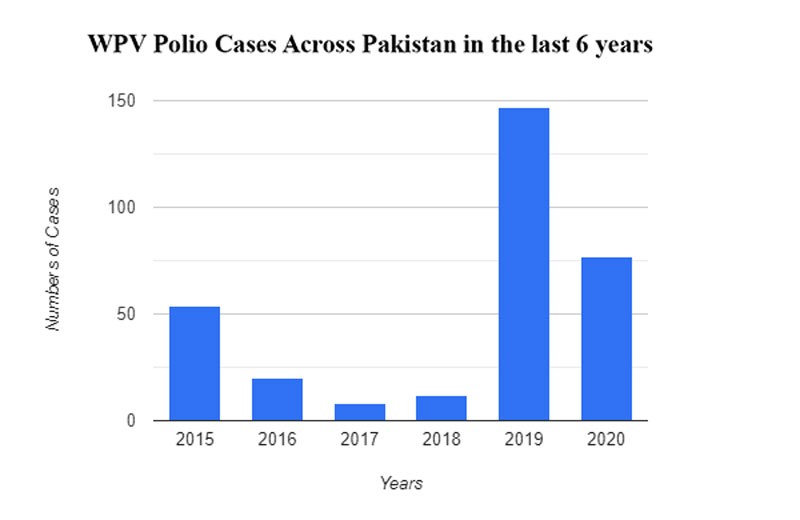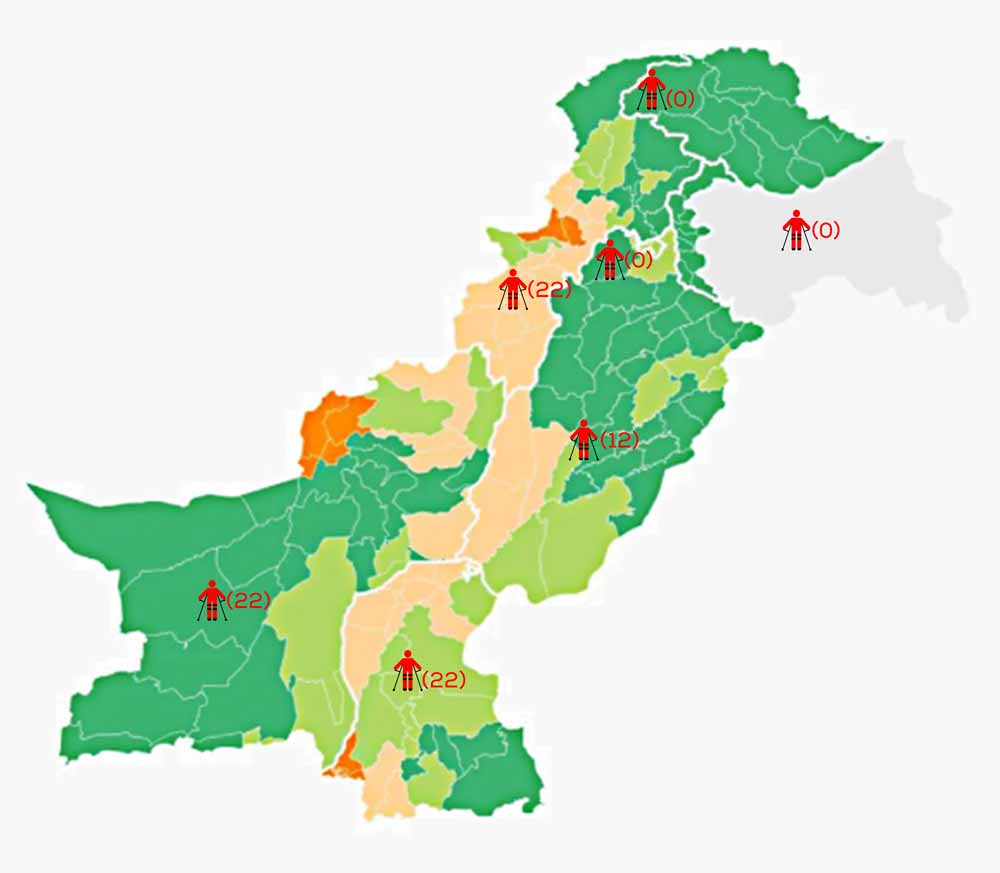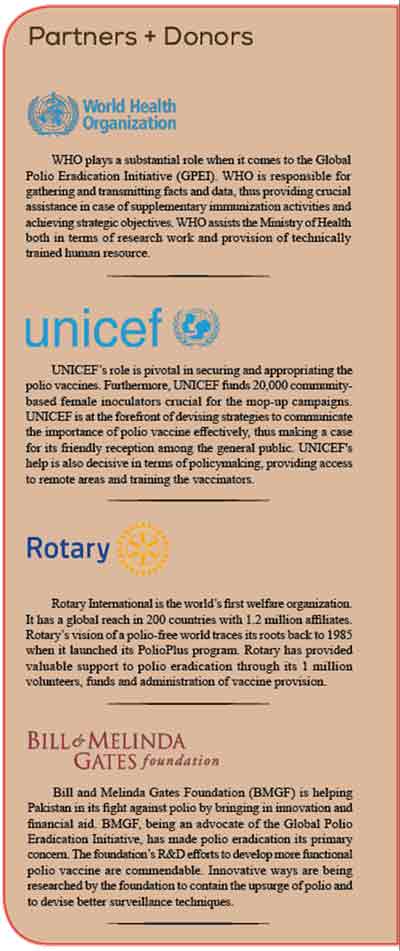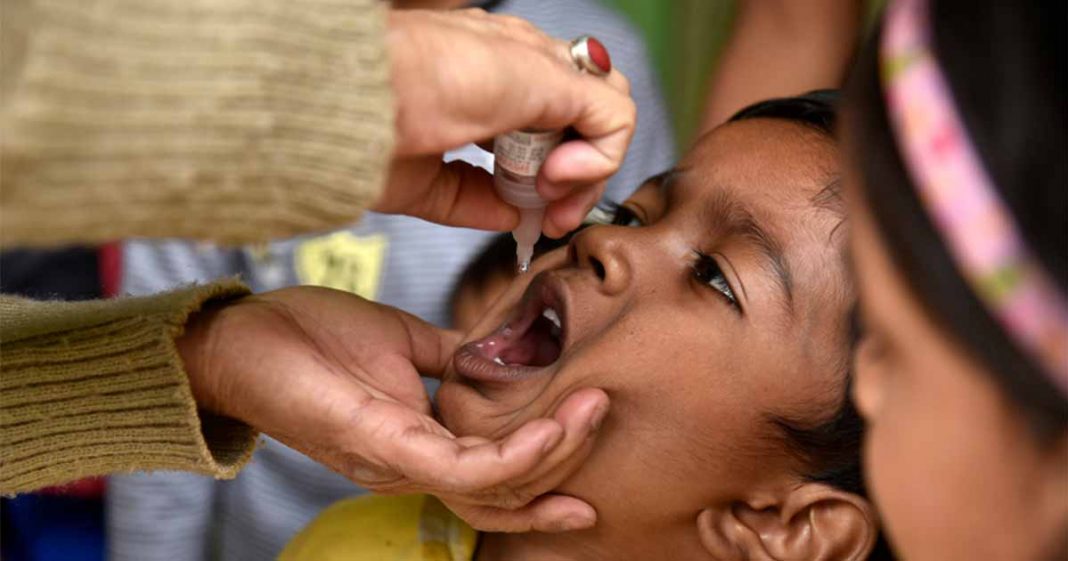The country’s health security is an essential part and parcel of its national security and polio affects Pakistan in more than one way. As a responsible member of the comity of nations, Pakistan being one of the two countries where polio is still endemic further affects its perception and trust across the world.
In 2014, after an exponential rise in polio cases across the country, the World Health Organization (WHO) mandated a travel restriction on those leaving the country to show that they had taken Polio vaccine a month prior to departure. Similarly, international tourists are recommended to take polio drops when coming to Pakistan, especially if going to areas where it is particularly prevalent.
Read more: How Pakistani corporate sector survived the pandemic
For the WHO, government’s responsibilities lie both towards their own population and those beyond its boundaries by ensuring it “minimizes the danger and impact of acute public health events that endanger the collective health of populations living across geographical regions and international boundaries.” Pakistan is currently classified by the International Health Regulations (IHR) as a state infected with WPV1, which has a potential risk of spreading internationally. This risk has been deemed at its highest level since 2014.
The poliomyelitis or poliovirus is an infectious disease spread primarily through human contact, through the ‘fecal-oral’ route. It spreads into the environment through an infected person’s feces; ultimately affecting the surrounding residents and community.
It can affect any age; however, children under the age of five are most susceptible to getting infected with it. The infected individuals can end up suffering from an irremediable ‘polio paralysis’ as the virus compromises one’s nervous system in a short time or even death.
Read more: Pakistan’s NCOC: Birth of a powerful democratic institution
The virus or wild poliovirus (WPV) itself has three types; euphemistically called type 1, type 2 and type 3. According to the WHO, WPV type 2 was ‘declared eradicated’ in September 2015, and there have been no type 3 cases since 2012 and was declared eradicated in October 2019.
Thus, only type 1 remains unvanquished. The Global Polio Eradication initiative shows 77 WPV1 cases in 2020 recorded in Pakistan so far, while the total number of cases reported in 2019 was 147. Pakistan along with Afghanistan and Nigeria, are the three countries that have never stopped polio transmission.

There are two vaccines used to protect against polio disease, oral polio vaccine and inactivated poliovirus vaccine. The former, most commonly used in Pakistan, are cheaply procured from UNICEF at around US$0.12-$0.18. Since they are orally administered (don’t need sterile needles) and do not require health professionals such as doctors; it is easier for mass vaccination campaigns.
Read more: Tackling virus: World needs cooperation not confrontation
Pakistan’s Polio Campaign and its Current Challenges
In 1988, when the Global Polio Eradication Initiative (GPEI) began, polio used to paralyze more than 350,000 children worldwide annually. The GPEI runs with support from its partners which includes the WHO, UNICEF, Rotary International, the US Centers for Disease Control and Prevention (CDC), and the Bill and Melinda Gates Foundation. So far, it has vaccinated over 2.5 billion children throughout the globe with an international investment of more than $11bn.
In Pakistan, the Polio Eradication Program is a public-private partnership which includes the Government of Pakistan as well as the aforementioned entities. The program started in 1994 and has made significant progress with case numbers declining by 99 percent from the 20,000 cases that were recorded in the early 1990s.

The program continues to lead polio campaigns all over the country with dedicated health workers who ensure each child receives the oral polio vaccine. In 2020, despite COVID-19 lockdowns, the program reached out to over 39 million under-five children with over 260,000 health workers involved. However, despite their laudable efforts, Pakistan along with Afghanistan remains one of the two countries in the world where polio remains endemic, with 77 cases already identified this year.
Read more: Why insurance industry has not prospered in Pakistan: CEO UBL Insurers explains
A meeting of the Polio Emergency Committee under the International Health Regulations (2005) (IHR) on the international spread of poliovirus was convened in June 2020. They issued a statement in which it was stressed that Pakistan continued to suffer from widespread polio transmission. They particularly highlighted southern Khyber Pakhtunkhwa becoming a new WPV1 reservoir and some areas such as Karachi and the Quetta block having uninterrupted transmission. They also noted that WPV1 had spread to previously polio-free areas in Sindh and Punjab.
Fighting an Uphill Battle
Over 100 frontline polio workers have been killed since 2012, whilst performing their duties. The challenge for eradicating polio results from a general lack of awareness of the effects of the virus, as well as an array of misconceptions about the vaccine. People cite religious reasons saying the vaccine is ‘haram,’ that it contains alcohol or pig fat (it doesn’t), whilst others see it as a western conspiracy to promoting infertility in Muslims.
In April 2019, over 25,000 children were brought to KP hospitals as a mass hysteria broke out against the vaccine blaming it for children falling ill after they took drops. Many heard announcements from local mosque loudspeakers and others quoted a viral WhatsApp video – with children taking drops and then falling on the ground (later this was shown to have been fake).
Read more: Building Pakistan’s Brand Power
The 2011 fake hepatitis B vaccine campaign funded by the CIA to locate Osama bin Laden, using Dr. Shakil Afridi, a Pakistani doctor, has left a lasting impression, especially in the rural conservative communities refusing polio drops.
Overall, even though the polio campaign itself is well-financed, Pakistan’s public health system and water sanitation infrastructure generally lack resources to provide better overall health conditions for its people. The low literacy rates inhibit awareness of the importance of vaccinations.
Countering Misinformation
Prime Minister Imran Khan acknowledges the issue as a global health emergency and has expressed the desire to curb it. Polio has generally been a non-political issue, and work has taken place across party lines. The current government is focusing on the super high-risk districts across the country to ensure a laser-sharp focus where a broader package of services will be delivered aiming to improve basic health services, nutrition, delivery of safe water and sanitation.

In October, the country saw adverts across the nation’s TVs as social and media influencers shared stories and tried spreading the message of the anti-polio campaign across high-risk communities. Information included what the effects are and why are multiple polio drops needed.
Religious leaders have actively been brought on board to encourage populations to take the drops and to be assured that religion supported such decisions. Maulvis are even escorting Polio workers administering drops as they go house to house, especially in conservative communities.
Read more: Ehsaas program for the needy


